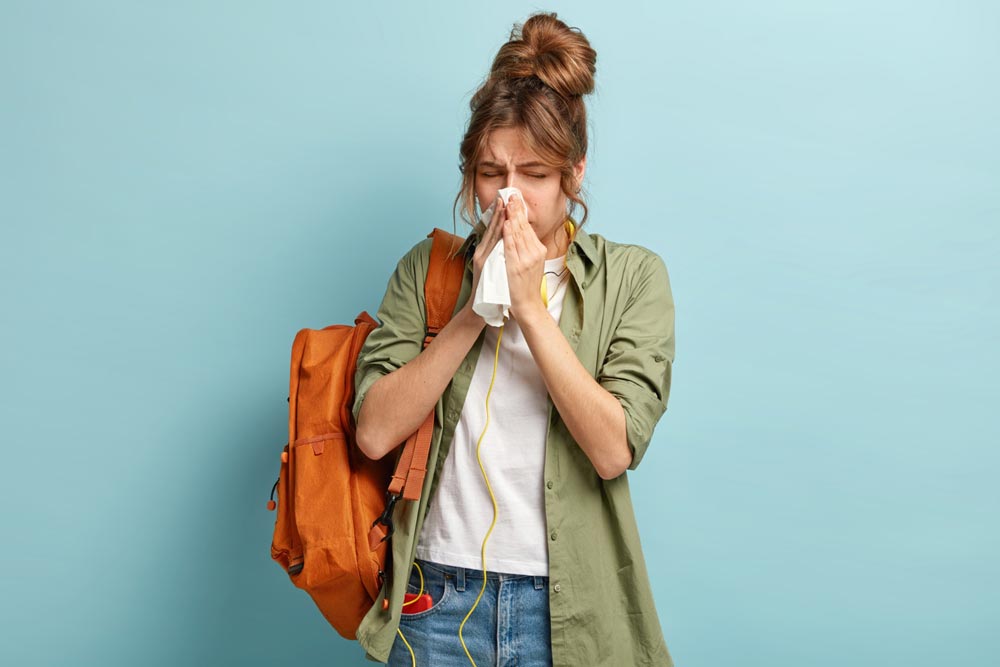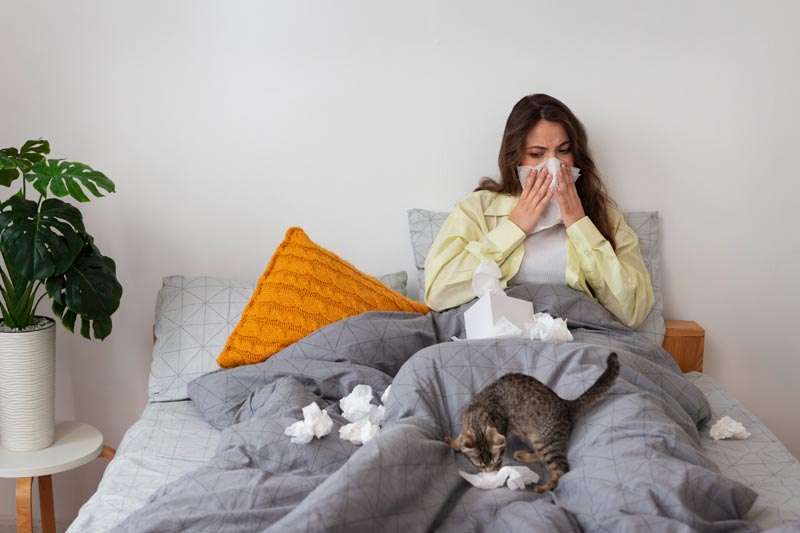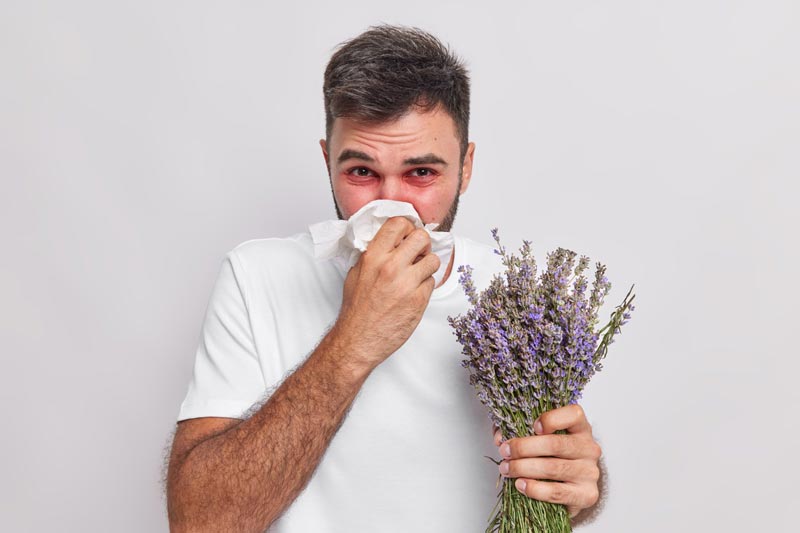
Urgent care centers are more than an alternative to a traditional hospital emergency room. These fast, affordable, walk-in clinics are essential in today’s healthcare landscape. For instance, urgent care centers in Fairfield, CT, help locals get the medical attention they need faster and easier than going to an Emergency Room. Urgent care centers also offer convenient and affordable services for non-life-threatening medical issues that are not urgent enough to be seen at a primary care physician, PCP’s office, or an emergency department. What’s more, these centers are beneficial if you don’t have a primary care doctor or cannot see them on short notice.
Unfortunately, many common allergy triggers may put your health at risk during the fall and winter months. But, with the help of DOCS Urgent Care & Primary Care Fairfield, you can get the treatment you need to feel better fast.
Several common allergy triggers require urgent treatment from an allergist or a walk-in clinic like those found in Fairfield, CT, and surrounding communities. Here’s a rundown of the allergy triggers that patients can experience during the fall and winter months and how urgent care can help.
These microscopic organisms feed on human skin and dander. They are common in areas with lots of fabric, like pillows, blankets, couches, and upholstered furniture. Dust mites are one of the most common indoor allergens and thrive in humid environments. When exposed to dust mites, people with allergies can experience symptoms like sneezing, a runny nose, and itchy eyes.
Dust mites can grow in clean and dirty homes, so regular cleaning can help reduce the problem. Cleaning with a vacuum cleaner that has a HEPA filter can help trap dust mites and reduce their numbers. Vacuuming regularly, at least once a week, using a vacuum with a HEPA filter can help reduce dust mite allergens in your home.
If you’re allergic to dust mites, it’s also important to wash bedding in hot water (130 degrees Fahrenheit) at least once a week. You can also put your pillows and blankets in the freezer for 24 hours to kill dust mites.
If you have severe dust mite allergies, you may need to see an allergist for immunotherapy in DOCS Urgent Care & Primary Care Fairfield, which can help reduce your symptoms.
Mold loves damp places, so it’s important to keep your home clean and dry. Use a dehumidifier, especially in the basement or other damp areas of your home, to help reduce mold growth. If you’re allergic to mold, avoiding damp places like public showers, locker rooms, and swimming pools are important.
Mold can grow anywhere there is moisture, commonly found in warm, humid climates. While mold isn’t usually a problem indoors unless there is excessive moisture, it can become a serious health hazard in places like a child’s bedroom. Mold spores are tiny and can float through the air, so they can be inhaled into the lungs. People of all ages can experience health problems from exposure to mold, including eye, nose, and throat irritation. This can cause symptoms like sneezing, runny nose, itchy eyes, and coughing.
In rare cases, people with allergies or chronic health conditions may experience more serious effects, such as infections. Keep indoor humidity below 45% to reduce your mold exposure risk. Use exhaust fans when showering or drying clothes, and clean up spills promptly. If you notice mold in your home, remediation by an experienced mold remediation professional is recommended.

For many people, pets are part of the family. But for those with pet allergies can be a source of sneezing, runny nose, itchy eyes, and coughing. The proteins that cause these symptoms are found in an animal’s skin cells, saliva, and urine.
If you have pet allergies, avoiding contact with animals is the best thing to do. But if you have a pet that you’re allergic to, there are some things you can do to reduce your symptoms.
First, keep your pet out of your bedroom. Second, bathe your pet at least once a week to help reduce the number of allergens in their fur. Third, use an air purifier with a HEPA filter to help remove pet allergens from the air.
Cockroaches are not just common pests in homes; they can also trigger allergies and asthma. Cockroaches have allergens in their droppings, saliva, and bodies, and these allergens can cause symptoms like sneezing, runny nose, itchy eyes, and coughing.
If you have cockroach allergies, the best thing to do is to keep your home clean and free of these pests. But if you already have a cockroach problem, there are some things you can do to help reduce your symptoms.
First, seal any cracks or holes where cockroaches can enter your home. Second, use roach traps to help reduce the number of cockroaches in your home. Third, clean your home regularly to remove cockroach droppings and other allergens.
People with food allergies may need to visit an urgent care clinic if they experience a severe allergic reaction, known as anaphylaxis. Food allergy symptoms may include swelling, hives, vomiting, diarrhea, and trouble breathing. Additionally, infants and young children allergic to peanuts, tree nuts, fish, or eggs should be treated as a medical emergency if they experience any symptoms. The best way to prevent an allergic reaction is to avoid the food allergen. When an allergic reaction occurs, treatment includes antihistamines and epinephrine, an injectable drug that helps reverse the reaction.

Poison ivy, poison oak, and poison sumac are common plants found in wooded areas, fields, and gardens. Urgent care clinics see many patients each year who have come into contact with these plants. If you have seasonal allergies and spend time outdoors, you’re also susceptible to these allergies. Symptoms of a contact allergy to these plants include red, itchy skin, blisters, and a rash. The best way to prevent a reaction to these plants is to wear protective clothing, like long sleeves and pants, when working outdoors. If you come into contact with the plants, wash the area thoroughly with soap and water as soon as possible. Chlorine bleach is also a good way to decontaminate the affected area.
The holidays are just around the corner, and it’s only a matter of time before your home is filled with the sights and smells of Christmas. But for people with allergies, the Christmas tree and wreaths can be a source of sneezing, runny nose, itchy eyes, and coughing. The allergens that cause these symptoms are found in the trees’ pollen and mold spores.
If you have set up a Christmas tree in your home, you may have noticed that it can cause sneezing, runny nose, and coughing. The reason for this is that Christmas trees are often treated with pesticides and other chemicals to keep them looking fresh. These chemicals can trigger allergy symptoms in some people.
If you have a real Christmas tree, be sure to wash it well before setting it up in your home. You can also buy an artificial tree that is made from materials that are less likely to trigger allergies.

Allergies can be very uncomfortable and inconvenient. If you find that you are frequently experiencing allergic reactions, you may want to consider taking an allergy test. Urgent care clinics in Fairfield, CT, such as the DOCS Urgent Care & Primary Care Fairfield, can help you treat allergy symptoms in the short term while waiting for an appointment with an allergist.
DOCS Urgent Care & Primary Care Fairfield is open seven days a week from 8 AM to 8 PM on weekdays and 8 AM to 5 PM on weekends. You don’t need any prior appointments, and walk-ins are always welcome. We accept all major insurance plans. If you have any questions, please feel free to contact us.


During this surge in COVID-19 cases, our primary focus is meeting the high demand for tests, and we are seeing higher than usual wait times. This means we are unable to answer most phone calls. Please know that our teams are working very hard during this time to care for as many patients as safely as possible. Please click the button below for answers to common questions. We appreciate your understanding.